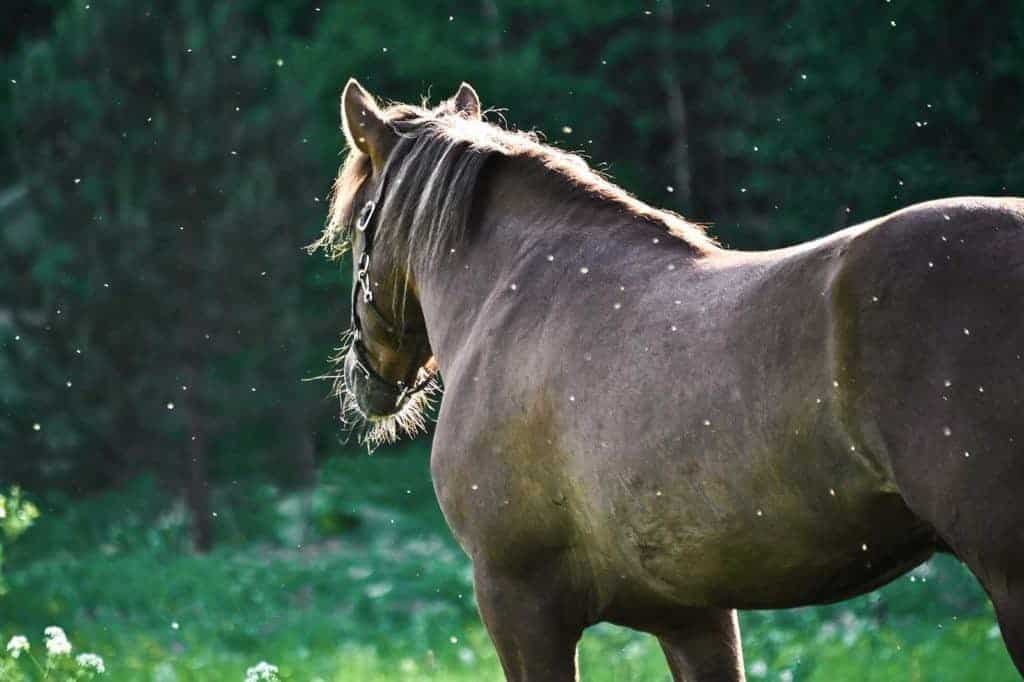
Climate and Vector-Borne Equine Diseases
Learn how rising temperatures and higher rainfall totals might lead to an increased risk of mosquito- and tick-borne disease in horses.

Learn how rising temperatures and higher rainfall totals might lead to an increased risk of mosquito- and tick-borne disease in horses.

Horses with WNV were identified in Brooks, Franklin, and Hart counties.

The 6-year-old Thoroughbred gelding, who was vaccinated against WNV approximately 10 months ago, is recovering from the disease.

The affected horse—a vaccinated 8-year-old Holsteiner stallion—developed mild ataxia, prominent skin twitching, and moderate behavioral anxiety. He has since fully recovered.

Animal health officials confirmed WNV cases in horses from Bryan, Garvin, Grady, Logan, Osage, and Payne counties.

Two horses in Washington County recently tested positive for WNV. Bradley, Cumberland, and Sullivan counties reported one case in each county.

Officials have now confirmed 48 cases of WNV in Ohio horses so far this year—more than triple the number of cases confirmed last year.

A 5-year-old Tennessee Walking Horse mare from Rockcastle County was euthanized and a a 12-year-old Tennessee Walking Horse mare from Hardin County is recovering.

An unvaccinated yearling Standardbred filly from Kent County was euthanized while an unvaccinated 6-year-old Belgian mare, also from Kent County, is recovering.

The 3-year-old Quarter Horse gelding from Carlisle County presented with lethargy and rear-limb ataxia but has improved and has a favorable prognosis. The horse’s current WNV vaccination status is under investigation.

The unvaccinated 7-year-old Quarter Horse mare from Barren County responded well to treatment and, as of Oct. 23, was described as fully recovered.

The New York State Department of Agriculture and Markets confirmed EEE in a 3-month-old filly from Oswego County and WNV in three horses from Chenango, Livingston, and Washington counties.


According to EDCC data, officials have now confirmed 43 cases of WNV in Ohio horses so far this year—more than triple the number of cases confirmed last year.

An unvaccinated 22-year-old Tennessee Walking Horse gelding from Smyth County developed an abnormal gait on Oct. 8. His condition has slowly with supportive therapy.

Dr. Elizabeth Davis explains how experts selected the vaccines every horse should receive.
Stay on top of the most recent Horse Health news with
"*" indicates required fields